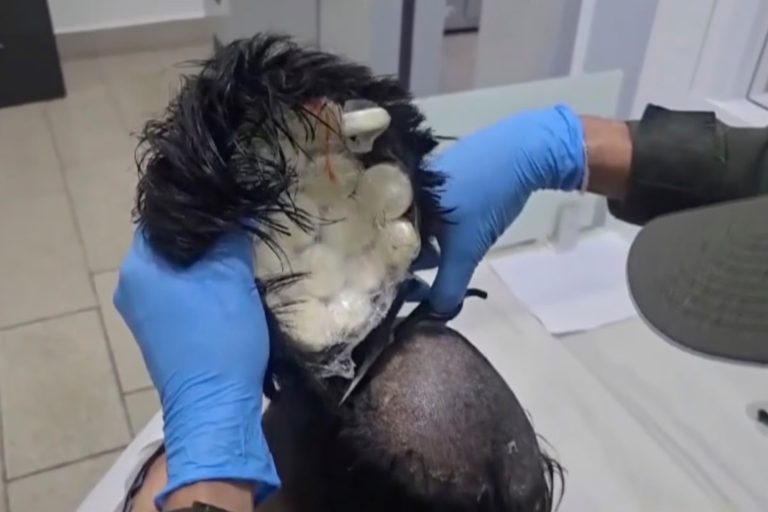A video has gone viral of a police removing a Colombian man’s wig, which had cocaine hidden underneath. The 40-year-old man was arrested at Cartagena’s Rafael Nunez International Airport after he attempted to smuggle the drugs into Amsterdam.
A report details that the man, a resident of Pereira, had booked a flight to Amsterdam. However, when he tried to board the flight on February 20, airport officials found the wig suspicious. BBC shared that when Colombia Anti-Narcotics scanned the man’s toupee, they identified something strange. An additional scan revealed that it concealed the illegal substance.
NDTV World reported that the police discovered over 220 grams (7.76 ounces) of cocaine hidden under the wig. The drugs carried a street value of about $10,450 (Rs 910,828), according to BBC. The huge quantity would have been divided into 400 doses, per report.
Colombian officer’s body cameras filmed the man in custody as the authorities removed his wig. The video was released online on Monday and has captured the attention of thousands of people globally.
In the video, an officer wearing blue surgical gloves can be seen carefully using scissors to cut off the wig that is glued to the man’s head. As the wig lifts off, more than a dozen packets of cocaine are revealed.
The New York Post reported that 19 cocaine capsules were strategically placed under the wig. Following the discovery, the man was arrested. The authorities described the man’s toupee as a “narco wig” in a statement, based on reports from AP.
He was placed at the disposal of the Attorney General’s Office. The report indicated that the 40-year-old Colombian is facing charges of trafficking, manufacturing, and carrying narcotic substances. According to a report, the man has a history of drug trafficking convictions.
The United Nations Office on Drugs and Crime shared that cocaine production has been on the rise in Colombia since 2013. Cartagena Police Commander Gen. Gelver Yesid Peñaindicated that young people are constantly being recruited by criminal organisations to traffic drugs.
“Organised crime groups are exploiting young people, falsely suggesting they can easily bypass our security measures. However, this case demonstrates that is not true,” Peña said.


